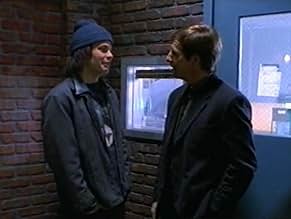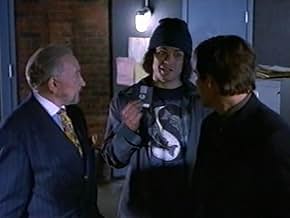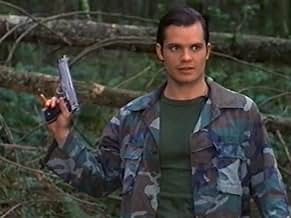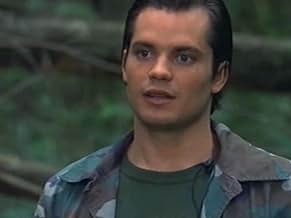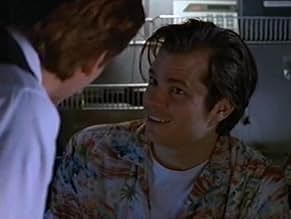A very short-lived spy series that didn't deserve its early cancellation, Mr & Mrs Smith filled a late-night slot in New Zealandwhere hardly anyone saw it.
Still, those of us who stayed up were rewarded with light-hearted scripts, the occasional plot twist, and an insight into the world of modern espionageone done by a private concern, rather than a government department.
Each story would generally begin with Mr Big (Roy Dotrice) receiving an assignment by way of a private contract, assigning it to his two field agents who would invariably have to pose as a couple. However, as the credits put it, 'We're not married'though most of the episode would feature a great deal of 'Will they? Won't they?' tension.
Of course, they wouldn't, and never did, thanks to the series' cancellation a few episodes in to its first season.
There were some techniques that were refreshing for the mid-1990s: the Thomas Crown split-screen effect was put to good use and took us back to an earlier time; the production designers gave everything a slickbut not too slickstyle that suggested a nice blend between fact and fiction; and a jazzy theme tune, 'Do You Want to Dance', delivered with soul and more melody than most of the electronica served up in the period.
All this paled in comparison to the performances given by Maria Bello and Scott Bakula. Bakula perhaps had the same uncertainty in his Mr Smith character as his Sam in Quantum Leap, but Bello played her role with great charm, showing that femininity and strength (she did many of her own stunts) were quite compatible. It's not something that Hollywood does well with its stereotypes. And if you hadn't heard of Maria Bello prior, you would after this. The fact she managed to get larger roles after Mr & Mrs Smith highlights the impact the few episodes had.
Mr & Mrs Smith's cancellation is mind-boggling at best. There are no surface reasons for its failure, given that the production values were high, the scripts were strong, the cast was well skilled. It was better than its contemporaries. The stories were not overly complexjust complex enough to please most people for an hour at a time. Nor was it out of step with tastes in 1996. That usually leaves one explanation: closed-door meetings and politicking among the network, forgetting the one group that needed to be pleased. The viewers.
The movie version with Pitt and Jolie was obviously inspired by this; but when that movie's credits give no mention of this foray, it's an added injustice on a series which, while it broke no new ground, was a highly entertaining, well made distraction.


